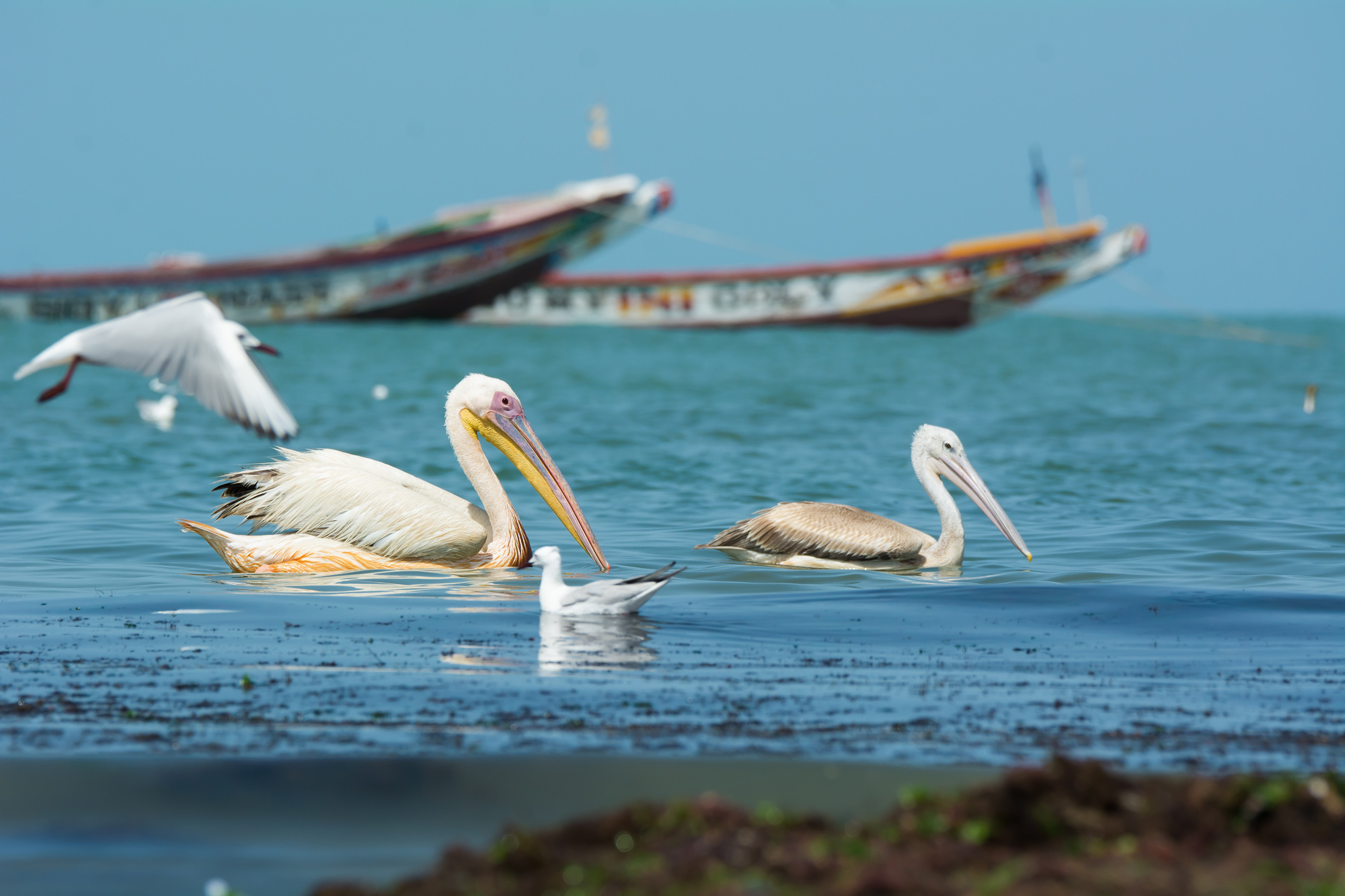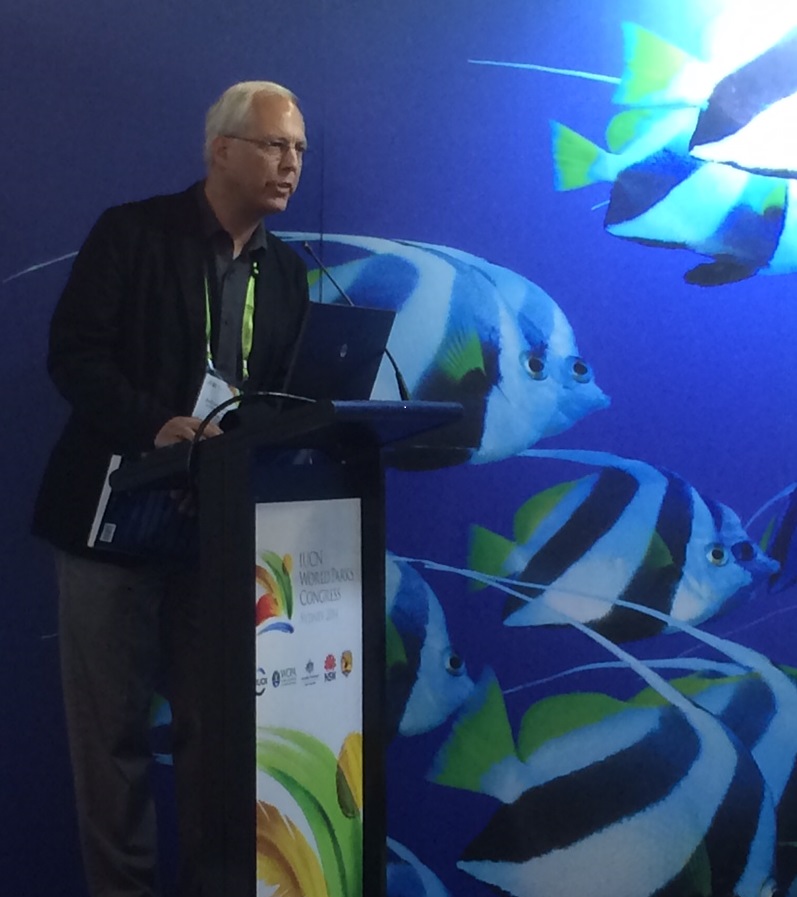
30 Sep Fishing Livelihoods as Key to Marine Protected Areas
Since the CCRN’s focus is on interactions of environmental conservation and sustainable livelihoods, it is not surprising that the network pays a great deal of attention to the increasing use of protected areas, and their impacts on stewardship and livelihoods. That focus on protected areas is shared by the thousands of people who attended the 2014 World Parks Congress, organized by the international organization IUCN to look at how parks and protected areas are functioning around the world. At that meeting, controversy erupted among those looking at conservation of oceans, notably over what target should be set for Marine Protected Areas (MPAs) globally, and how strict MPAs should be, whether ‘no-take’ or allowing limited human uses within them.

Dr. Tony Charles presenting at the IUCN World Parks Congress.
In light of this controversy, Tony Charles, CCRN Director, teamed up with several co-authors to analyse the issue by writing a new paper that has just been published in the journal Aquatic Conservation. The paper, “Fishing livelihoods as key to marine protected areas: insights from the World Parks Congress”, was released on September 5th, 2016, at the IUCN’s World Conservation Congress in Hawai’i. Along with Dr. Charles, its authors include Lena Westlund, Devin M. Bartley, and Jessica Sanders of the Food and Agriculture Organization of the United Nations (FAO), together with Warrick J. Fletcher (Western Australia), Serge Garcia (IUCN’s Fisheries Expert Group) and Hugh Govan (Locally Managed Marine Areas Network, Fiji).
The rationale for the article is stated in its abstract: “In coastal areas, it has become clear that the success of MPAs, and the achievement of sustainable fishery production, requires a combination of effective management and conservation frameworks, maintenance of decent fisheries livelihoods, and a governance system that allows for effective participation of coastal communities, fishing people, and other ocean users in considering, designing and implementing MPAs. These ingredients are crucial to provide the social sustainability needed to achieve ecological sustainability, and in particular, to reconcile fisheries and marine conservation objectives, in light of the United Nations Sustainable Development Goals and Aichi targets of the Convention on Biological Diversity (CBD).”
“The article focuses on potential strategies for moving constructively beyond the still existing tensions between environment- and people-focused conservation and development.”
The paper is Open Access and can be downloaded here: http://onlinelibrary.wiley.com/doi/10.1002/aqc.2648/full

Image: http://worldparkscongress.org/


